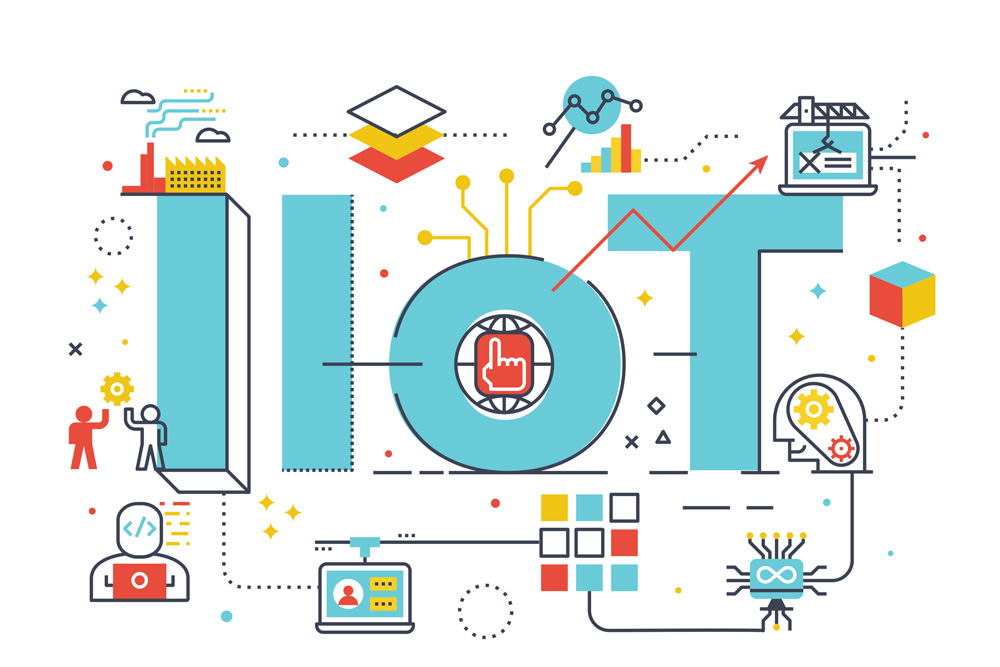

Photo:© Kanda Euatham / Adobe Stock
While the pandemic has forced some manufacturers to reduce their investments in technology, 45 per cent of companies familiar with IIoT are increasing the use of advanced technologies in operations, and 36 per cent are using digital technologies to enhance business decision making.
This year’s survey of Industry 4.0 deployment by Canadian manufacturers clearly shows that more companies are applying digital technologies to create value and improve operations. Two years ago, 32 per cent of manufacturers were applying or considering investments in digital connectivity; now 43 per cent are actively deploying technologies related to the Industrial Internet of Things.
The pandemic has sped up the process a lot. Fully 78 per cent of companies say that the pandemic has accelerated digital transformation. While the pandemic has forced some manufacturers to reduce their investments in technology, 45 per cent of companies familiar with IIoT are increasing the use of advanced technologies in operations, and 36 per cent are using digital technologies to enhance business decision making.
IIoT enables manufacturers to automate more, enrich their monitoring and data analytics applications, and deploy additive processes, artificial intelligence, and virtual reality.
Yet, it is also clear from the survey that most manufacturers are not implementing digital tools simply for the sake of investing in technology. They are more discerning about why they should invest. Their business objectives are to increase throughput, enhance quality, overcome staff shortages, reduce downtime, reduce time to market, develop new revenue streams, and enable more product innovation.
Manufacturers want the benefits, but the technologies they are looking for need to be manageable, appropriate to the task, and supported by a workforce that has to know how to operate them in order to deliver desired business results. It only makes sense that decision makers want to understand the risks as well as the advantages of technology deployment. They expect a net return on their investments. And, they want to see the money fast.
One of the biggest changes from previous years is the proportion of companies that are intentionally monetizing the data they are collecting. Two years ago, 74 per cent of companies applying IIoT were looking for a payback on their investments; now 92 per cent are expecting to make money specifically as a result of the data they are able to collect from digital technologies. Roughly, 90 per cent of those companies applying IIoT see it as a business growth opportunity. Most are applying data to improve operating efficiencies, but an increasing number are looking to add new services and develop new business models.
They are confirming that digital technologies are not simply tools that can be used to displace existing production methods or business processes. As more materials, products, equipment, processes, factories, and value chains become digitized, they are also being transformed into data platforms. It’s the information that is being collected from those platforms – not the technologies themselves – that enables companies to develop new ways of creating value and enhance operating performance. Identifying and analyzing the data that can lead to better business outcomes is what counts.
Still, 86 per cent of companies familiar with IIoT say that Industry 4.0 is a great concept but challenging to implement. It’s interesting that the number of companies that do not see the economic benefit of deploying advanced technologies or finding them too costly to implement has fallen significantly over the past two years. Those aren’t the main factors holding manufacturers back. More significant are the challenges involved in integrating new technologies in existing systems, avoiding downtime during technology deployment, developing the skill sets required to operate new systems effectively, concerns over cybersecurity, pressures on cash flow, and lack of available funding.
These are important operational concerns. For smaller companies, in particular, they can be formidable business risks and barriers to investment. But the risks are mainly around the selection of technology and the resources required to use it productively and profitably. As more companies are discovering, these are manageable risks if business objectives are clearly understood, practices are in place that maximize customer value and minimize waste, worker skills are being upgraded, and companies are open to learning from others.
Maybe though it’s time to focus more on data – on what information is important, how it can be safeguarded and quality tested, and how it can be turned into the knowledge, prediction, and increasingly into the autonomous decision making that companies can use to increase agility, improve operational performance, and generate greater customer value. Only 38 per cent of companies say they have a comprehensive data strategy in place. That’s not enough to ensure that the deployment of Industry 4.0, whether IIoT or other advanced technologies, will actually deliver the business objectives that manufacturers are expecting at the end of the day.
_____________
Jayson Myers, the CEO of Next Generation Manufacturing Canada, is an award-winning business economist and advisor to private and public sector leaders. E-mail jayson.myers@ngen.ca. Visit www.ngen.ca
